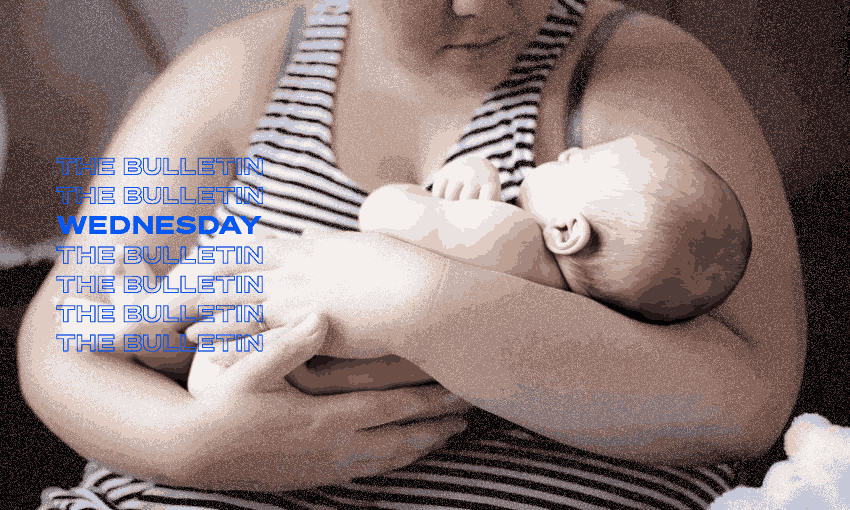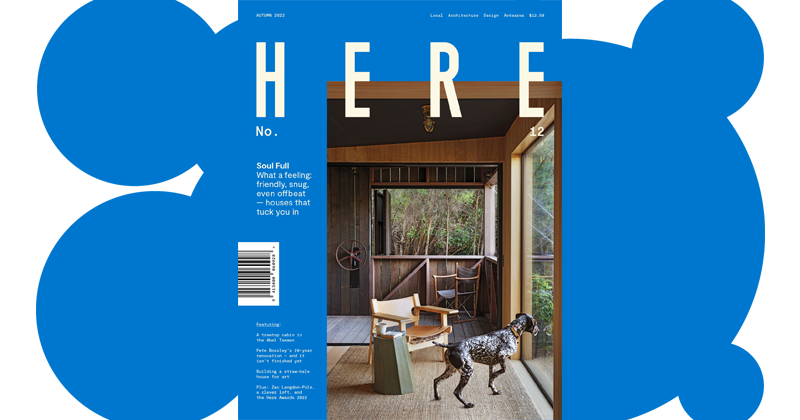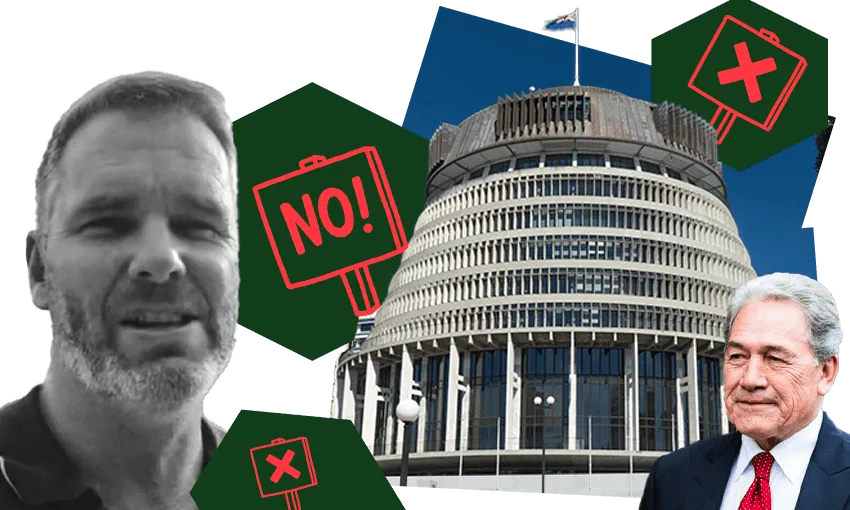Perinatal mental health ignored for years
A new report into perinatal mental health outlines ways the country could be transformed if we addressed it. Many of the solutions lie beyond the "health system".
Mōrena and welcome to The Bulletin for May 4, by Anna Rawhiti-Connell. Presented in partnership with Z Energy.
In today’s edition: National ahead in new poll; close eye on Ruapehu; a “wicked bible”; but first, what to do with another grim report on mental health.
Perinatal distress can have severe consequences – for parents, babies and families (Photo: File)
“It takes a village”
I worked on a feature about mental health last year and talked to Te Waharoa, a local provider in Tairāwhiti, who were seeing results by taking an holistic approach. I always think about them when new reports on the grim state of mental health come out. On Sunday, the Helen Clark Foundation launched a new report into perinatal mental health, ”Āhurutia Te Rito | It takes a village”. It was accompanied by statistics that many rightly found shocking. The report actually details how better perinatal mental health support could work by providing policy solutions to the socio-economic drivers of mental distress and recommending that kaupapa Māori and community-led initiatives be empowered and resourced adequately.
Perinatal mental health is not a new problem
Though confronting, none of the statistics reported are new. Suicide was identified as the leading cause of maternal mortality by the Perinatal and Maternal Mortality Review Committee (PMMRC) between 2006 and 2018. Gaps in service were clearly identified in 2021. In a piece yesterday, Emily Writes said “For six years I’ve seen reports come and go and people say ‘not one more mum’ and ‘this has to stop’. It never does. Nothing seems to change”. She’s not wrong.
Binders full of reports
In 2000, a Health Funding Authority report noted that “Postnatal depression occurs in 10-20% of women.” “Healthy Beginnings” is a 75-page Ministry of Health report from 2012 focused entirely on infant and maternal mental health. The government inquiry into mental health and addiction report, He Ara Oranga, clocked workforce issues around specialties like maternal mental health in 2018. These are just three examples - there are more. You are left with the impression that addressing a mental health crisis like the one outlined in Āhurutia Te Rito isn’t something that can be done with another report or by a single government department. It's the sum of many parts and requires an approach beyond “the health system”.
“We need to see a plan”
I spoke to Shaun Robinson, CEO at the Mental Health Foundation, about the Āhurutia Te Rito report. He says it’s time to move past more “words on a page” and to see a plan - what, how and when. He noted that many of the recommendations in the report line up with the recommendations in He Ara Oranga, which advocated a shift away from treating mental health as just a health system problem. The service at Te Waharoa does exactly that by dealing with whatever is weighing on that person including financial, housing and relationship stress. You don’t need an appointment and whānau are involved at every step. These kinds of success stories don’t let government off the hook in addressing the big issues and properly funding mental health services, but they do offer an alternative to another 20 years of reports.
The Spinoff’s first-ever weekly food newsletter is here. Launching this week, The Boil Up, written by Charlotte Muru-Lanning, is a collection of Aotearoa’s best in food and beverage, delivered to your inbox every Thursday. Produced in partnership with our friends at Boring Oat Milk, the newsletter will bring you the political, social, trendy, personal and delicious aspects of this country’s diverse and ever-changing culinary landscape. The Boil Up will be a shared table where we can gather to break bread and contemplate the meaning of food in our lives. From new restaurants to historic family recipes, cocktails to cookbooks, there’ll be something for all tastes. Subscribe to The Boil Up here and go in the draw to win a three month supply of Boring Oat Milk and cool Boring merch.
National hits the 40s in latest Newshub-Reid Research poll
The last poll was done in February. The new poll has National up 9.2% to 40.5%. Labour is down 6.1%, to 38.2%. The Greens are at 8.4% and Act are at 6.4%. Te Pāti Māori could once again be “kingmaker”. In the preferred prime minister polling Christopher Luxon is up 6.1% and Ardern is down 7%. It’s the first poll since the protests at parliament which might have been starting to fade from memory if it weren’t for a trespass notice issued to former deputy prime minister Winston Peters yesterday. We’ve had two official cash rate increases that have lifted interest rates since February and the rate reached a 30-year high in March.
Steam plume above Ruapehu
It was reported by GNS Science at around 9.45am above the crater lake. Scientists say it wasn’t accompanied by any seismic activity but they conducted an observational flight. Ruapehu is into its sixth week of increased seismic activity and on Monday, GNS science reported the strongest activity at the site in 20 years. If needs be, the Department of conservation is ready to extend the exclusion zone around the area but don’t think there is a likelihood of significant ashfall. A Tongariro national park ranger told RNZ he still anticipates there being a ski season.
“Wicked” bible discovered in New Zealand.
The bible, dated to 1631, accidentally encourages adultery. The bible misses the word “not” after “thou shalt” on the seventh commandment. As Eva Corlett at the Guardian reports, about 1000 copies of this bible were printed before the printers were dragged before the court to answer for their sins and fined. There are only 20 remaining copies and one has been found in New Zealand. In a familiar case of the Austrlaians claiming ownership of things, they have also claimed they have a copy of this wicked bible. University of Canterbury associate professor in medieval studies, Chris Jones, simply laughed when asked about that, as we all have about the pavlova or Crowded House.
Here is an architecture and design magazine about what it’s like to live in Aotearoa. Not just about houses, Here covers books, art, design and the beautiful things you might like to have in your home. It’s a magazine that’s progressive, joyful and fun. Here 12 is on sale now. Called Soul Full, it’s about houses that just feel right – houses that feel like home, whether it’s because of a beautiful design or the collection inside it. It features a fabulous off-grid cabin in Abel Tasman and architect Pete Bossley’s own home in Tāmaki Makaurau. Published six times a year, Here is a locally owned, independent title, committed to making something beautiful – and meaningful. Here is offering Spinoff readers seven issues for the price of six. Subscribe now using the code SPINOFF22.
“Rugby might not be around in 50 years”
Former English rugby player Ben Kay is taking part in a landmark study on whether players might be at greater risk of developing dementia because of concussions sustained during their rugby career. He’s concerned rugby might not be around in 50 years because parents simply won’t let their kids play a game that risks that kind of head injury. Other codes like rugby league are facing similar calls from players. Former Warrior, PJ Marsh suffered a neck injury twenty years ago while playing and has talked about the long term impacts that’s had on his life. He wants the NRL to look at stronger deterrents and penalties for dangerous tackles.
Got some feedback about The Bulletin, or anything in the news? Get in touch with me at thebulletin@thespinoff.co.nz
Former National MP Matt King and NZ First leader Winston Peters have been trespassed from parliament for two years – Toby Manhire predicts it's a move that's going to backfire horribly; Sam Brooks asks what's gone wrong with this year's Dancing With the Stars after another shock elimination; Tara Ward recaps the typically bonkers season finale of Outlander; Bernard Hickey argues for an even higher debt ceiling for young people; and Siouxsie Wiles has everything we know about the latest omicron variants.















